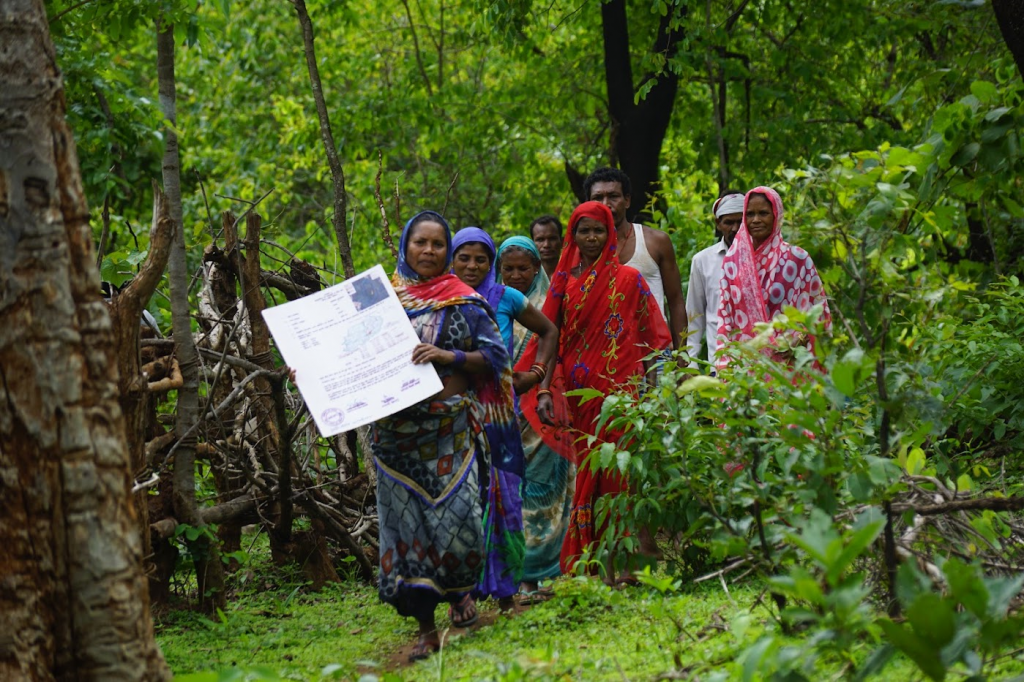


Forest rights activist and Goldman Environmental Prize recipient Alok Shukla asserts that the Hasdeo Aranya forests in Chhattisgarh, home to endangered species and medicinal plants and the source of livelihood for 15,000 tribal people, can be conserved without compromising on India's coal demands. However, the government continues to allocate mining projects in the region, spurred by a desire to favor certain corporations. Shukla highlights the widespread community protest against such actions, fueled by broken promises and distrust towards the government and corporations. With 5,000 million tonnes of coal reserves available elsewhere, Shukla calls for the protection of the biodiverse Hasdeo forests and support for the livelihoods and cultural identity of the local community.
Hasdeo Aranya: Coal Mining vs. Conservation
The Hasdeo Aranya forests in Chhattisgarh, India, have emerged as a contentious battleground between coal mining and environmental conservation. These forests, home to endangered species, medicinal plants, and the livelihoods of 15,000 tribal communities, face the threat of mining projects that could irrevocably damage their ecosystem.
Background
The Hasdeo Aranya forests are part of the larger Satpura-Maikal range, a globally significant biodiversity hotspot. They are home to tigers, leopards, elephants, and over 1,000 plant species, many of which have medicinal value. The forests also provide a crucial source of water for the region and play a key role in mitigating climate change.
Despite their ecological importance, the Chhattisgarh government has allocated 13 coal blocks in the Hasdeo Aranya region to private corporations. This move has been met with widespread opposition from environmentalists, conservationists, and local communities.
Forest Rights Activism
Forest rights activist Alok Shukla, a Goldman Environmental Prize recipient, has been a leading voice in the fight to protect the Hasdeo Aranya forests. He has highlighted the broken promises and lack of trust between the government and corporations, and the negative impacts these projects could have on the tribal communities and the environment.
Shukla emphasizes that India has ample coal reserves elsewhere (approximately 5,000 million tonnes), making the destruction of the Hasdeo Aranya forests unnecessary. He calls for the protection of these biodiverse forests and support for the livelihoods and cultural identity of the local community.
Top 5 FAQs and Answers
Q: What are the main concerns about coal mining in the Hasdeo Aranya forests? A: Concerns include deforestation, habitat destruction, pollution, water contamination, and the loss of cultural identity for local tribes.
Q: How many tribal communities rely on the Hasdeo Aranya forests for their livelihoods? A: Approximately 15,000 tribal people depend on the forests for their basic needs, such as food, medicine, and shelter.
Q: Why is the government allocating mining projects in the region despite opposition? A: The government claims that these projects are necessary for India's energy security and economic growth. However, critics argue that other coal reserves exist and that the environmental and social costs outweigh the benefits.
Q: What is the current status of the protests against coal mining in Hasdeo Aranya? A: Community protests and activism have been ongoing for several years. Protesters have faced police violence and intimidation, but they remain determined to protect their forests.
Q: What can be done to protect the Hasdeo Aranya forests? A: Conservationists and activists call for the cancellation of coal mining projects, increased forest protection measures, and support for sustainable livelihoods for local communities.

Union Railway Minister Ashwini Vaishnav, at the International Railway Equipment Exhibition (IREE), highlighted India's remarkable progress in railway modernisation, stating that under the leadership of Prime Minister Narendra Modi, the country has witnessed the construction of 35,000 kilometres of new railway tracks and electrification of 46,000 kilometres of tracks in the past 11 years. He praised the Confederation of Indian Industry (CII) for organising the IREE and urged them to think bigger and envision a global-scale railway exhibition that surpasses Germany's InnoTrans, showcasing India's growing capabilities in railway infrastructure and technology.

On Friday, the IRCTC website and mobile app faced technical issues, causing an outage and inconvenience to over 5,800 users trying to book tickets. Social media platforms were flooded with complaints as the server crashed during peak booking hours, with some suggesting the need for better technology to handle festive rush. Officials have assured that efforts are being made to restore normal operations.

In a boost for the festive season, Indian Railways has launched two special Vande Bharat trains between Delhi and Patna. These trains will run till November 17 and offer a luxurious and secure travel experience for passengers during Diwali and Chhath Puja. With stops at six important stations, these trains will cover a distance of 1,000 km in under 14 hours.

As India prepares for Dhanteras 2025, gold has already become the star of the show, with prices surging more than 50% this year and showing no signs of slowing. The combination of global and domestic factors, including safe-haven demand, central bank buying, and economic uncertainty, has pushed gold to an all-time high of over Rs 1,30,000 per 10 grams. As investors flock to add the precious metal to their portfolio, experts predict a continued upward trend, driven by lower interest rates, de-dollarisation, and geopolitical tensions.

India’s economy and markets are seeing a resurgence, with PE and VC investments soaring to a three-year high of $26 billion in 2025. The country’s growing affluence and digital transformation have spurred a luxury market boom, with high-end brands rushing in to meet the demand. The trend is supported by a shift towards larger, more strategic investments in sectors such as IT and consumer staples.

MCX December gold futures on the Multi Commodity Exchange (MCX) skyrocketed by 1.4%, reaching an all-time high of ₹1,32,770 per 10 grams. Meanwhile, silver prices dropped slightly on the MCX to ₹1,85,000 per kilogram. The surge in gold prices can be attributed to a weaker US dollar, strong spot demand, and positive global cues, making gold an attractive investment option. However, the rising prices may have an impact on shoppers this Diwali, as the cost for 10 grams of 24-carat gold has surpassed ₹1.3 lakh. Despite this, jewellers remain optimistic, as increased household liquidity and positive economic indicators continue to encourage discretionary spending.

The well-known fitness club chain, Planet Fitness, has recently opened a new location in Monument, Colorado. Located at 16096 Jackson Creek Parkway, the club will hold its official grand opening on Saturday with a celebratory event at 10 a.m. This new location promises to offer residents of Monument a state-of-the-art fitness facility and a wide range of amenities.

The CEO of Virgo Specialities Pvt Ltd, Ketan Kadam, has been denied bail for the second time for his alleged involvement in the Mithi river desilting scam. The sessions court noted that Kadam has "direct involvement" in the crime, having "managed money received from contractors in his shell companies." According to the Economic Offences Wing (EOW), Kadam and others conspired to defraud the Brihanmumbai Municipal Corporation (BMC) through irregularities in the tendering process. Kadam is accused of manipulating the terms and conditions of the tenders to benefit his company and causing losses to the BMC.

As India's luxury market continues to see a rise in demand, M3M India, one of the biggest real estate developers in Delhi-NCR, has announced the launch of Jacob & Co. Residences in Noida. This will be the first residential development in India under the iconic Jacob & Co. brand, and is expected to generate a topline of ₹3500 crore. The project will feature ultra-luxury serviced residences and limited-edition Jacob & Co. timepieces, elevating the ownership experience to a whole new level. With this venture, M3M aims to bring a truly global lifestyle to homebuyers in Noida and contribute to the nation building vision of Prime Minister Narendra Modi.

Get the latest and most trusted insights on the world of business and finance delivered straight to your inbox by subscribing to our newsletters. Our team of experts curates exclusive content that you can rely on, without any bias or external influence. Stay informed and ahead in the ever-changing world of business with our newsletters.